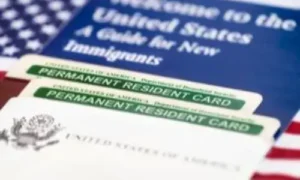Concerned about immigration issues following President Donald Trump's re-election? Click Here
 Immigrants often enter the United States seeking a better life and hoping to take advantage of opportunities that will allow them to live in safety and financially support themselves and their families. Unfortunately, there are many situations where immigrants may be subject to deportation. In some cases, immigration officials may use “expedited removal” proceedings to ensure that a person will be required to leave the country without the opportunity to have their case heard by an immigration judge. In these situations, it is important to understand exactly what expedited removal is and the potential defenses that may be used.
Immigrants often enter the United States seeking a better life and hoping to take advantage of opportunities that will allow them to live in safety and financially support themselves and their families. Unfortunately, there are many situations where immigrants may be subject to deportation. In some cases, immigration officials may use “expedited removal” proceedings to ensure that a person will be required to leave the country without the opportunity to have their case heard by an immigration judge. In these situations, it is important to understand exactly what expedited removal is and the potential defenses that may be used.
Generally, expedited removal applies to immigrants who attempt to enter the United States without documents that authorize them to do so. In 2017, President Donald Trump issued an executive order expanding the use of expedited removal and allowing the Department of Homeland Security (DHS) to use this process for all undocumented immigrants who had been physically present in the U.S. for under two years and who entered the country illegally. However, the administration of President Joe Biden has rescinded this expanded use of expedited removal, and as of March 2022, the process is once again limited to cases where immigrants are apprehended near the border. In most cases, expedited removal will apply to those who first arrive in the United States or were apprehended within 100 miles of the border within 14 days after their entry. It may also be used if a person arrived in the U.S. by sea and was apprehended within two years after their date of entry.
If DHS officials determine that a person qualifies for expedited removal, they may order the person to be immediately removed from the United States and returned to their country of origin. Immigrants in these cases will usually deal directly with a DHS officer, without the chance to have their case heard by an immigration judge. After being removed, a person will typically be barred from re-entering the U.S. for five years.
While expedited removal usually happens quickly, there are a few potential defenses available to immigrants. If a person expresses a credible fear of returning to their home country because they believe they will experience persecution or torture, they may be eligible for asylum, and their case will be heard by an immigration judge to determine whether they qualify for these protections. A person may also be able to avoid removal by showing that they have a lawful immigration status in the United States. This can be difficult if a person is not in possession of documents such as a passport showing they are a U.S. citizen or a valid green card. However, DHS officials are required to attempt to find proof of these claims, and even if proof cannot be found, a person’s case may be reviewed by an immigration judge to determine whether they may have the right to remain in the United States.
If you or a member of your family have been detained by ICE or another division of DHS and may be subject to expedited removal, you will want to determine your legal options. At John W. Lawit, LLC, we can help immigrants defend against deportation or address other issues that may affect their status in the United States. To get legal help with your case, contact our Irving deportation defense lawyer at 214-609-2242.
Sources:
https://www.justice.gov/sites/default/files/eoir/legacy/2013/01/22/Expedited%20Removal%20-%20English%20%2817%29.pdf